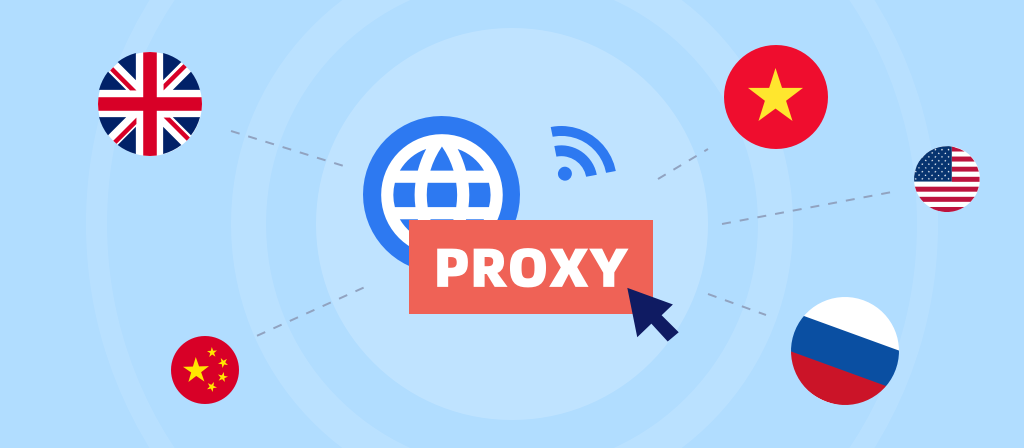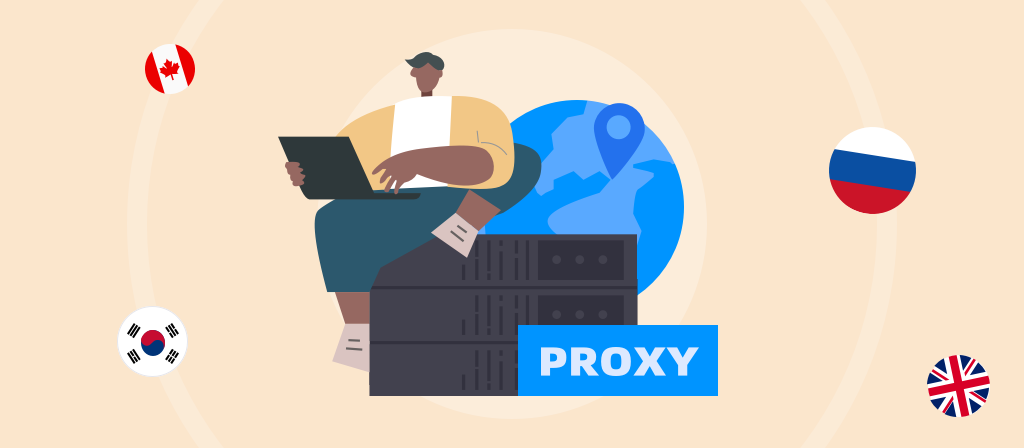
At present, proxy servers are widely used. Many individuals or companies use proxy servers. If you want to use a proxy but don’t know how to choose, read this article.
Proxy Server Definition
A proxy server is a middle server that sits between users and the internet, providing a gateway between them. As such, it helps prevent cyber attackers from gaining access to private networks and is known as an “intermediary.”
When a computer connects to the internet, it uses an IP address. This is similar to your address, telling incoming data where to go, and marking outgoing data with a return address so that other devices can authenticate. A proxy server is essentially a computer on the internet that has its own IP address.
How a proxy works
Because a proxy server is equivalent to a computer, it has its own IP address and acts as an intermediary between the computer and the Internet. When you send a request on the Internet, the request is routed to the proxy, which then gets the response from the web server and forwards the page data to you.
It mainly involves the following steps:
1. The process starts when a device submits a request to access online content or web resources, usually by entering the URL of the website in a web browser.
2. Instead of being forwarded directly to the web server hosting the content through the Internet Service Provider (ISP), the request is first routed to the proxy server.
3. The proxy server has its own unique IP address and then transmits the request to the target web server, thereby hiding the IP address of the original user.
4. The web server processes the request, ignoring the original IP address, and sends the requested data or website back to the proxy server.
5. The proxy server performs a basic security function by scanning the returned data for potential threats (such as malware) before forwarding it to the requesting device.

Functions of proxy servers
The common function of proxy servers is to act as a gateway between users and the Internet and provide the following functions:
1. Content caching: It usually stores some requests from users and speeds up access by storing frequently requested content.
2. Anonymity: It hides the user’s real IP address to protect their identity from being discovered, maintaining privacy and anonymity.
3. Content filtering: It blocks some specific websites or content according to rules to reduce the push of content.
4. Access control: It limits access to the Internet or specific resources based on user credentials or policies.
Advantages of Proxy Servers
1. Improved Security
Because proxy servers filter malicious data off the internet before it reaches the company’s servers, it can act as an extra layer of security. It can also increase the security of your system and reduce the risk of cyberattacks.
It can also help companies defend against phishing, identity or brand theft, DDoS attacks, and other malware attacks.
2. Anonymity
Because the proxy sits between the network and the internet server, the internet cannot know the company IP that generated the request. It protects sensitive company data from being stolen when there is an extra layer of security between the unfiltered internet and the company’s servers.
3. Faster Speed
Caching is another important function performed by proxy servers. Proxies can cache frequently visited websites, making the next request faster.
4. Control Internet Usage
Proxies can be used to block bad content. Proxy servers also allow network administrators to monitor requests sent to the internet to ensure that no illegal or inappropriate activities are being conducted.
5. Bypass Restrictions
Some websites only allow access to IPs from specific locations. Proxies can bypass geographic restrictions and content restrictions to access the content they need.
Why use a proxy server?
Proxy servers have a variety of applications and can help us achieve many purposes.
1.IP address masking
Proxies hide your real IP address by routing traffic through a proxy server, providing a degree of anonymity when accessing websites.
2.Bypassing geo-restrictions
Proxies can help you access content that is inaccessible to regular IPs.
Improving performance through caching
Caching proxies store copies of frequently accessed web content, speeding up loading times and reducing bandwidth usage for commonly requested resources.
3.Content filtering
Proxies can set rules for acceptable internet use, blocking certain websites or types of content, which is useful in controlled environments such as schools or workplaces.
4.Saving bandwidth
By caching frequently visited websites and compressing data, proxies can help reduce overall bandwidth consumption.
5.Web scraping
Proxies are widely used for web scraping, allowing users to scrape data from websites without revealing their IP address or being blocked.
6.Anonymity in simple tasks
Proxies provide basic anonymity when you only need to hide your IP address to perform low-security tasks, such as bypassing geo-blocking or accessing certain websites.
7. Faster local network access
Companies can use internal proxies to reduce external Internet usage, thereby speeding up access to internal resources.

How to get a proxy?
There are hardware and software versions. Hardware connections sit between your network and the internet, where they get, send, and forward data from the web. Software proxies are typically hosted by a provider or reside in the cloud. You download and install an application on your computer that facilitates interaction with the proxy.
Often, a software proxy can be obtained for a monthly fee. Sometimes, they are free. The free versions tend to offer users fewer addresses and may only cover a few devices, while the paid proxies can meet the demands of a business with many devices.
What does a proxy server do?
Proxy servers perform crucial tasks in managing web traffic within the digital space. These servers engage with unique Internet Protocol (IP) addresses of devices, mediating the flow of requests and responses between users and the web. Instead of allowing a device to connect directly to a web server via an internet service provider (ISP), the proxy server intercepts the request, forwards it using its own IP, and then screens any returning data for potential security threats before sending it to the user. This way, proxy servers maintain user privacy, boost network performance, and enhance control over web interactions, while also enabling strategies for location-based web browsing.
Who is suitable to use a proxy server?
Proxy servers can be used for several reasons. Organizations or individuals that need the following functionality should consider setting up a proxy server.
Content filtering and network security are possible with a proxy server.
A proxy server can be used to bypass censorship and content filtering.
Reverse proxies are useful for handling fluctuating website traffic.
Conclusion
Using a proxy can help us achieve many needs, hide our real IP, and ensure the security and privacy of our Internet activities. If you also want to know more about proxy servers, come here and have a look.



